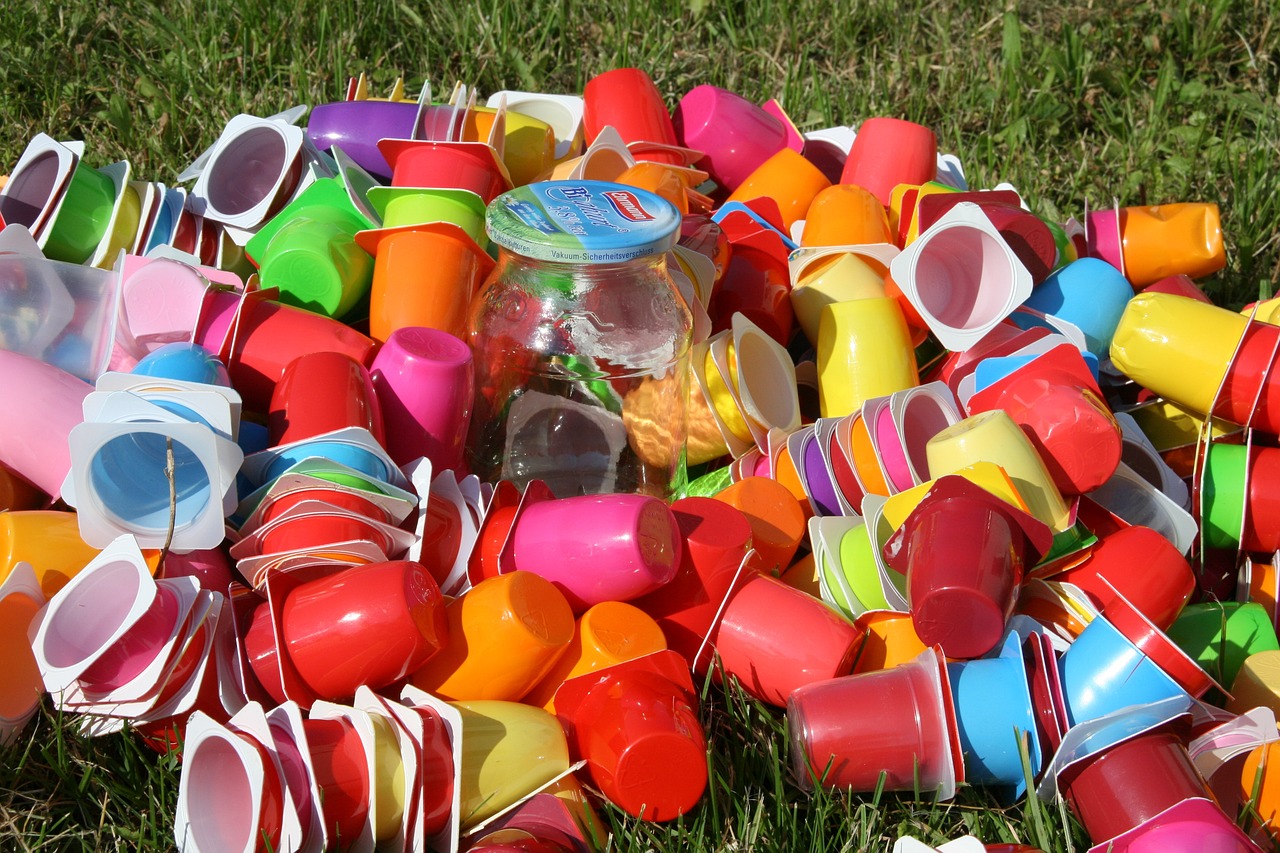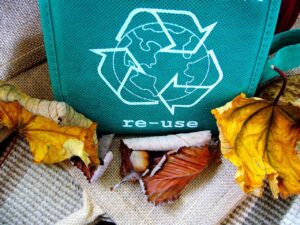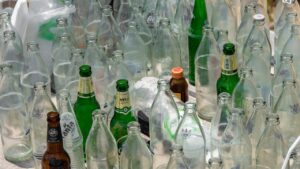Introduction
Recycling for kids is not just a concept; it’s a pathway to shape a brighter future for our planet. When I reminisce about my childhood, I recall endless green parks, pure air, and pristine skies. Regrettably, these simple joys are fading away for today’s children due to urbanization, pollution, and climate change. However, in these times of environmental challenges, we possess a potent tool for change: recycling.
Today, we embark on a journey into the heart of “Recycling for Kids,” an initiative that educates and empowers the youngest members of our society to become the eco-warriors our planet so desperately needs.
The world is changing
Our environment is undergoing a profound transformation, with scenes from our childhood—vibrant nature and unpolluted skies—growing increasingly rare. The essence of the world we once knew is fading before our eyes, pushing us to take action.
The power of recycling
Recycling emerges as a beacon of hope in these challenging times. It’s a simple yet potent act that can turn the tide in favor of our planet. Recycling isn’t just about sorting trash; it’s a catalyst for change, instilling environmental consciousness and responsibility in generations to come.
Recycling for Kids
Our focus today is on nurturing the environmental stewards of tomorrow. We’ll explore “Recycling for Kids,” a concept that transcends waste management. It’s about providing young minds with the knowledge, tools, and inspiration to make a lasting impact on our planet.
Why Kids Matter
The importance of involving children in recycling efforts cannot be overstated. By instilling these eco-friendly habits early in life, we empower them to take ownership of their actions and embrace sustainable practices that will shape their future.
The Journey Ahead
Throughout this article, we’ll delve into the significance of teaching recycling to kids. We’ll uncover the profound benefits it offers, from cultivating environmental awareness and responsibility to sparking curiosity and critical thinking.
Creative Ways to Teach Recycling
We’ll explore innovative methods for introducing recycling to kids. From engaging storytelling to hands-on activities and exciting field trips, we’ll equip you with a diverse toolkit to make learning both informative and fun.
Recycling Activities for Kids
Furthermore, we’ll unveil a treasure trove of recycling activities designed to captivate young minds. These include everything from recycled fashion shows and environmental cleanups to gardening projects and engaging games.
A Call to Action
As we journey through the world of “Recycling for Kids,” we’ll not only discover its significance but also the transformative power it holds. It’s a call to action for parents, educators, and communities alike to guide the next generation toward a more sustainable and harmonious relationship with our planet. The path to change begins with them, with us, with “Recycling for Kids.”
Understanding Recycling
Let’s start from the basics. What is recycling? To break it down, recycling is the process where we transform our waste materials into new, reusable products. It’s kind of like magic! Remember when we used to turn an empty cereal box into a dollhouse? Or when we used a discarded tin can as a flower pot? That’s recycling!
Why is Recycling Important?
Recycling holds immense significance in our world today. It’s not just about being environmentally conscious; it’s about safeguarding the future of our planet and its inhabitants. But why should we take the trouble to recycle, you may ask?
The Benefits of Recycling
Recycling does a multitude of wonderful things for our environment. First and foremost, it reduces the staggering amount of waste that would otherwise end up in overflowing landfills. And here’s the kicker – it also dramatically cuts down on the need for new raw materials. That means fewer trees are cut down, less metal is mined, and fewer resources are extracted from our precious Earth. It’s a win-win situation for both nature and us.
Impact on the Environment
But the benefits don’t stop there. Recycling actively contributes to keeping our environment clean and reducing the harmful emissions that stem from waste. It’s like giving Mother Earth a much-deserved break from the strain of our wasteful habits. Landfills, which are essentially mountains of discarded waste, release harmful gases into the atmosphere, contributing to air pollution and climate change. Recycling significantly lessens these detrimental effects, making our world a cleaner and healthier place to live.
Introducing Recycling to Kids
Now that we’ve highlighted why recycling is so crucial for our planet, the question arises – why should we bother teaching our little ones about recycling?
Importance of Early Education
The importance of early education in environmental matters cannot be overstated. By teaching kids about recycling from a young age, we are grooming a generation of responsible, environmentally-conscious citizens. We are sowing the seeds of environmental awareness and stewardship. The impact of early education in shaping values and behaviors is immeasurable, and in this case, it’s paving the way for a better tomorrow.
How to Introduce the Concept
So, how do we go about introducing recycling to kids? The key is to make it engaging, like introducing them to a new game. It’s a hands-on experience that involves their senses and curiosity. Show them, don’t just tell them. Demonstrate how an empty soda can be transformed into a cool pencil holder. Point out the recycling symbol ♻️ on various items around them. The world around them will suddenly become an exciting treasure hunt! By making recycling tangible and fun, we ignite their interest and set them on the path to becoming eco-warriors in their own right.
How Kids Can Help in Recycling
It’s astonishing how much of a difference young children can make when it comes to recycling. Their fresh perspective, boundless enthusiasm, and capacity to learn quickly are powerful assets in the fight against waste. By involving kids in recycling efforts, we not only harness their untapped potential but also instill lifelong habits that contribute to a more sustainable future.
Different Ways Kids Can Recycle
Children can contribute to recycling efforts in diverse and impactful ways. They can learn to sort out waste at home, distinguishing between paper, plastic, glass, and organic materials. This not only teaches them about responsible waste disposal but also turns recycling into a daily habit. Moreover, kids can make conscious choices to use products made from recycled materials, supporting the circular economy. Additionally, they can advocate against single-use plastics at school, raising awareness among their peers and promoting eco-friendly alternatives. Empowering, isn’t it?
As parents, we play a pivotal role in shaping our children’s attitudes and behaviors towards recycling. Creating a recycling-friendly environment at home sets an excellent example. Consider placing separate bins for different types of waste – one for paper, another for plastic, and so on. Make your kids responsible for these bins; it’s a task they’ll likely relish. In doing so, you not only simplify the recycling process at home but also teach them valuable lessons about organization and responsibility.
Recycling at School
Schools provide an excellent platform for introducing recycling to children on a broader scale. Educational institutions can organize recycling drives, encouraging students to collect and bring recyclable materials from home. This hands-on experience instills the importance of recycling in young minds and creates a sense of accomplishment. Additionally, schools can incorporate recycling education into the curriculum, teaching students about the value of recycling, the environmental impact of waste, and the role they can play in conserving resources. Moreover, implementing recycling programs on school premises, complete with labeled bins and regular collections, not only makes recycling accessible but also ingrains the habit into the school’s culture.
Fun Recycling Projects for Kids
Learning about recycling doesn’t have to be a chore; it can be a delightful adventure filled with creativity and exploration.
DIY Recycling Crafts
The world of crafting opens up a universe of possibilities when it comes to recycling. Children can transform discarded items into artistic treasures. Consider creating a beautiful bird feeder from a plastic bottle or fashioning a funky photo frame from old popsicle sticks. These hands-on projects not only encourage creativity but also reinforce the idea that everyday items can be repurposed and given new life. Moreover, crafting with recycled materials allows children to witness the transformation of waste into something functional and beautiful.
Creating Art from Recycled Materials
Children possess an innate love for art, and recycled materials provide an abundance of resources for their creative endeavors. Encourage them to express themselves through artistic projects that involve reusing and recycling materials. Whether it’s a collage made from old magazines, a sculpture crafted from cardboard boxes, or a painting created on reclaimed wood, these activities channel their artistic talents while imparting the value of repurposing and sustainability. It’s a creative outlet that simultaneously nurtures an eco-conscious mindset.
Tips for Parents
As parents, we hold the guiding torch on this recycling journey with our children. Making recycling a seamless and enjoyable part of their lives begins with us.
Making Recycling Fun
To engage kids in recycling, it’s essential to infuse an element of fun. Turn recycling into a challenge or a game. For instance, see who can collect the most recyclables in a week or create a reward system where each act of recycling earns them points or small rewards. Positive reinforcement plays a crucial role in reinforcing recycling habits. Most importantly, always celebrate their achievements, regardless of how small they may seem. This not only encourages their efforts but also reinforces the idea that recycling is a source of pride and accomplishment.
Tracking Progress
Kids love visual cues of their accomplishments. Set up a fun tracker at home where they can record their recycling progress. Whether it’s a chart on the fridge or a digital app, seeing their achievements accumulate can be highly motivating. You’ll be surprised to see how dedicated and enthusiastic they become about filling that tracker!
The Role of Schools in Promoting Recycling
Schools are pivotal in shaping a child’s perspective and habits, including those related to recycling.
School Programs
Schools can actively promote recycling through a variety of programs and initiatives. Events like ‘Recycle Day’ or ‘Eco-friendly Craft Exhibition’ can not only educate students about recycling but also make it an exciting and memorable experience. Moreover, integrating recycling education into the curriculum ensures that every child learns about the importance of recycling from a young age.
Creating a School Recycling Culture
Imagine a school culture where every child is a conscious recycler. Schools can instill this culture by practicing and promoting recycling at every level. From establishing designated recycling bins throughout the campus to involving students in waste sorting and collection, schools can create an environment where recycling becomes second nature.
Government Initiatives Promoting Recycling Among Kids and Schools
Governments worldwide are recognizing the significance of teaching recycling to kids and are taking active steps to make it an integral part of a child’s education.
USA – Keep America Beautiful (KAB)
In the United States, the Keep America Beautiful (KAB) initiative is a prime example. They organize the “Recycle-Bowl” competition, engaging school children in a nationwide recycling contest that inspires them to start recycling from a young age. KAB also provides valuable information and resources for students and educators, making it easier for schools to embrace recycling as an educational tool.
UK – Eco-Schools Programme
The United Kingdom supports the Eco-Schools program, an international initiative that encourages pupils and teachers to develop environmentally friendly practices within their schools. Schools that excel in sustainable practices, including recycling, are rewarded with the internationally recognized Green Flag, which acknowledges their efforts in promoting eco-conscious behaviors among students.
Australia – National Recycling Week
Australia’s National Recycling Week, organized by Planet Ark, aims to draw national attention to the environmental benefits of recycling. This week-long event is packed with competitions and activities for schools, encouraging students to learn about recycling in a fun and engaging manner.
Japan – Environment Education Act
Japan stands as a pioneer in instilling environmental consciousness in children. Under their Environment Education Act, they are committed to nurturing the feelings and attitudes of children toward a sustainable society, with a particular focus on activities such as recycling. These government initiatives underscore the importance of incorporating recycling into a child’s education from a global perspective, emphasizing its role in shaping a greener, more sustainable future.
Challenges in Teaching Kids About Recycling
It’s not always a smooth road when it comes to teaching kids about recycling. There might be a few hurdles along the way. But don’t worry! We’ve all faced a challenge or two (or a hundred) when teaching kids something new.
Overcoming Obstacles
Firstly, children may not immediately grasp the concept of recycling. Differentiating between waste types and understanding why some items can be recycled while others can’t can be a bit tricky. It’s like teaching them the difference between a square and a rectangle. You remember those days, right?
In these cases, patience and repetition are key. Just like learning math or science, understanding the fundamentals of recycling will take time. But the good news is that they really get it once they get it!
Resisting Change
Let’s face it, we all resist change somehow, and kids are no exception. They might be used to disposing of everything in a single bin. Now, you’re asking them to sort their waste. “Why, Mom? Why, Dad?” Sound familiar? It’s because changing habits is a process, and it requires consistent effort.
But remember, small steps lead to big changes. Start by recycling one material type like paper or plastic. Once they’re comfortable with that, introduce another, and so on.
Making Recycling Fun
Another challenge is to make recycling interesting for kids. Unlike adults, kids might not feel motivated by just the thought of helping the environment. For them, it must be fun or it becomes a chore.
This is where creativity comes into play. Engage them in fun recycling projects, show them interesting videos about recycling, or even turn it into a game. Who can sort their waste the fastest? Who can make the most creative art piece from recycled materials?
Complex Concepts
Some concepts in recycling, like the impact of waste on wildlife or climate change, may be difficult for young children to understand.
To overcome this, use simple analogies, stories, or even children’s books about the environment. This way, complex ideas become accessible and relatable.
Conclusion
In a nutshell, teaching kids about recycling comes with its challenges. But as parents and educators, we’ve tackled bigger hurdles, haven’t we? And remember, the end goal is worth it – shaping a generation that values sustainability and cares for the environment. So let’s roll up our sleeves and take on the challenge. Happy recycling!
FAQs
- Why is recycling important for our kids? Teaching kids about recycling creates responsible individuals and paves the way for a more sustainable future.
- Can recycling be fun for kids? Absolutely! With DIY crafts and fun challenges, recycling can be an enjoyable activity for kids.
- How can schools promote recycling? Schools can organize special events, include recycling in the curriculum, and foster a recycling culture. They can also participate in government programs that incentivize recycling.
- Is it challenging to teach kids about recycling? Like any new habit, it can have its challenges. But kids can learn to embrace recycling with patience, creativity, and consistency.
- Can kids make a significant difference through recycling? Indeed! Every small effort counts and children can play a crucial role in promoting recycling.
- Are there government programs that encourage recycling among kids? Yes, many governments worldwide have programs that promote and incentivize recycling in schools and among children.




